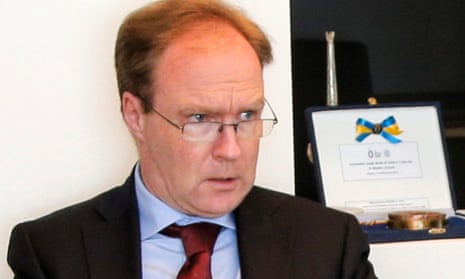When Britain’s ambassador to the EU quit in 2017, he urged staff to fight “ill-founded arguments and muddled thinking” in government. This week, seeing that there is still quite a bit of this about, Ivan Rogers delivered a speech in Liverpool on “the nine lessons of Brexit”, which has rather neatly summarised the flaws, dishonesty and confusion that have characterised Britain’s approach to the negotiations. The speech will make uncomfortable reading for both Theresa May, her cabinet and her political opponents, and can be read in full here. At more than 10,000 words, however, it’s longer than your average policy brief. For them, and for you, here are Rogers’ key points, in digested form.
‘Brexit means Brexit’
Rogers points out that the government seems to be expecting the EU to bend its club rules to accommodate the UK. The EU is not going to do this, because its solidarity is with its partners, not with a soon-to-be opponent and rival. When Britain leaves, it really will be leaving, and won’t be offered frictionless trade without free movement and the continued jurisdiction of the European court of justice. Neither will it be offered the benefits of membership in return for alignment with EU rules from the outside. He says: “The solidarity of the club members will always be with each other, not with you. We have seen that over the backstop issue over the last 18 months. The 26 supported Dublin, not London. They still do. Nothing the prime minister now bids for will change that.”
‘Other people have sovereignty too’
The EU will try to maximise its own sovereignty and power where it can, and this will not work to the advantage of the UK. Rogers points out that although not technically bound to follow EU rules after Brexit, even in the event of a hard separation, in reality they will still affect us: “Because in ‘taking back control’ over our laws and leaving the adjudication and enforcement machinery of what used to be our ‘home’ market, we are privileging notional autonomy over law – making over real power to set the rules by which in practice we shall be governed, since departure from norms set by others when we are not in the room will in practice greatly constrain our room for manoeuvre.”
‘Brexit is a process not an event’
The UK underestimated the EU’s ability to negotiate, and bought into the fantasy of a quick, easy break. This caused it to make several serious mistakes: triggering article 50 too soon, and giving little serious thought to the adjustment period that would be needed because it assumed a trade deal would be so easy. As Rogers says: “What we needed to do very early on was to recognise the complexity and inevitable longevity of the exit process, work out our viable options, achieve real clarity about where we wanted to land, having worked honestly through the very tough choices we faced – and still do face – and reconcile ourselves to a serious period of transition.”
‘It is not possible or democratic to argue that only one Brexit destination is true, legitimate and represents the revealed ‘will of the people’ and that all other potential destinations outside the EU are ‘Brexit in name only’.’
Theresa May’s model for leaving prioritises ending free movement above other objectives, and frictionless trade in goods above the interest of the UK services sector. But there are many other possible interpretations of the vote.
Rogers says: “Both fervent leavers and fervent remainers as well as No 10 seem to me now to seek to delegitimise a priori every version of the world they don’t support.”
‘If WTO terms or existing EU preferential deals are not good enough for the UK in major third country markets, they can’t be good enough for trade with our largest market.’
There is a contradiction at the heart of the argument made by many of those advocating no deal. They say both that WTO terms are good enough for the UK to trade on, and that Britain’s prosperity depends on it striking multiple trade deals abroad.
Rogers puts it like this: “You cannot simultaneously argue that it is perfectly fine to leave a deep free trade agreement with easily our largest export and import market for the next generation, and trade on WTO terms because that is how we and others trade with everyone else – and argue that it is imperative we get out of the EU in order that we can strike preferential trade deals with large parts of the rest of the world, because the existing terms on which we trade with the rest of the world are intolerable.”
‘The huge problem for the UK with either reversion to WTO terms or with a standard free trade deal with the EU is in services’
The UK services industry will suffer greatly under current plans for leaving the EU, because May has emphasised frictionless trade in goods, despite manufacturing representing a far smaller slice of the economy. This is a disaster that not many people are yet talking about, but which will damage the very communities that were promised a Brexit dividend. Rogers says: “Post exit, and post the end of any transitional arrangement, it is UK services exporters who will face the starkest worsening of trade terms because of the substantial difference between how far services trade is liberalised under even the highly imperfect European services single market, and the very best that is achievable under any other form of free trade or regional agreement on the planet.”
‘Beware all supposed deals bearing ‘pluses’. The ‘pluses’ merely signify that all deficiencies in the named deal will miraculously disappear when we Brits come to negotiate our own version of it.’
Adding “plus” to any deal is merely the expression of a wish, an indication that whatever deal being referred to – Canada, or Norway – has disadvantages that you would ideally like to eliminate. The most mendacious of these coinages is perhaps “no-deal plus” – the idea that walking away will prompt offers of mini side deals on medicines and transport from the EU. Instead, Rogers says: “No developed country has left a trade bloc before, let alone in disorderly fashion, and let alone one which has become a lot more than a trade bloc. But I do fully understand the legal realities. And because so-called ‘WTO rules’ deliver precisely no continuity in multiple key sectors of the economy, we could expect disruption on a scale and of a length that no one has experienced in the developed world in the last couple of generations.”
‘You cannot, and should not want to, conduct such a huge negotiation as untransparently as the UK has. And in the end, it does you no good to try.’
The EU has been much better than the UK at transparency during these negotiations. The UK must do better: “You can’t possibly run one of the largest and most complex trade negotiations on the planet, and leave most supposed insiders, let alone a much wider public, in the dark about the extremely difficult choices we shall face.”
‘Real honesty with the public is the best – the only – policy if we are to get to the other side of Brexit with a healthy democracy, a reasonably unified country and a healthy economy.’
The UK government has been opaque to the point of dishonesty, which has allowed all sides to get into the habit of magical thinking and fantastical feats of optimism.
“And even yesterday morning I listened to a shadow cabinet member promising, with a straight face, that, even after a general election, there would be time for Labour to negotiate a completely different deal – including a full trade deal, which would replicate all the advantages of the single market and customs union. And all before 30 March. I assume they haven’t yet stopped laughing in Brussels.”
What is particularly striking about Rogers’ speech is that it hasn’t been made before. The flimsy arguments Rogers does away with here have been deployed by our most senior politicians for some two years now. Perhaps as a result, when Rogers’s speech was published it was greeted not so much with interest as with a sort of relief – testament to how unmoored from reality the discussions have become. It should serve as a useful blueprint of how the debate should be conducted from now on. But given the problems with our political class Rogers has diagnosed, that in itself would be a miracle.

